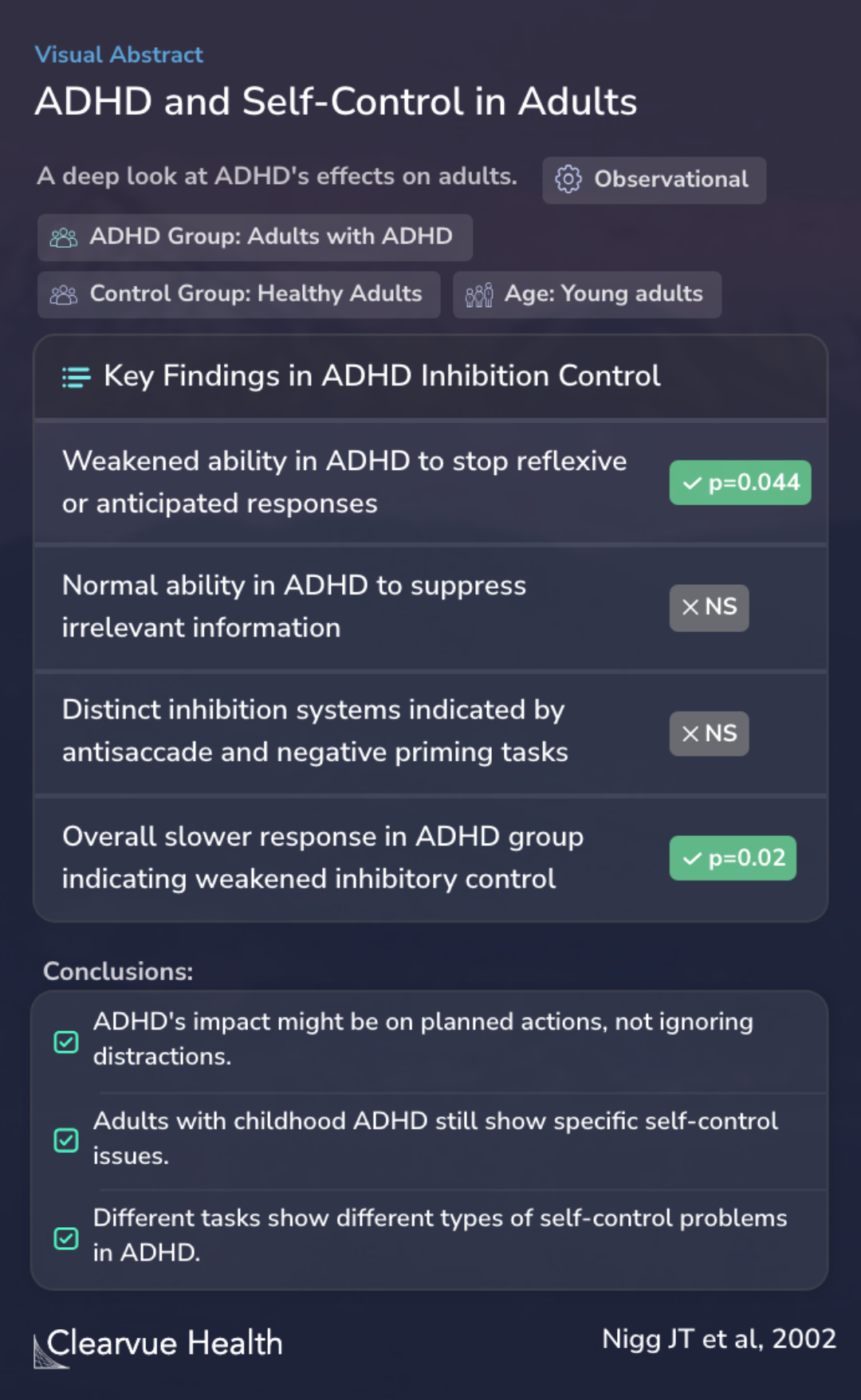Inhibitory processes in adults with persistent childhood onset ADHD
ADHD and Self-Control in Adults
Nigg JT, Butler KM, Huang-Pollock CL, Henderson JM

Objectives
The paper explores a theory suggesting that adults with ADHD might struggle because of a specific problem in their brain's control system, which is supposed to help them stop their actions when needed.
The theory that attention-deficit/hyperactivity disorder (ADHD) stems from a deficit in an executive behavioral inhibition process has been little studied in adults, where the validity of ADHD is in debate.
Methods
The study looked closely at how well adults with ADHD and adults without this condition can control their actions using two special tests. One test checks how good they are at stopping their eyes from moving towards something they see suddenly, and the other test sees if they can ignore things that are not important.
This study examined, in high-functioning young adults with persistent ADHD and a control group, 2 leading measures of inhibitory control: the antisaccad task and the negative priming task.
Results
The findings from this study show that adults with ADHD face challenges in stopping movements they start, like where they look, especially when they need to do it on purpose. However, they're just as good as adults without ADHD at not paying attention to stuff that doesn't matter. This indicates that there are different types of control in our brains, and ADHD affects some but not all of these. Additionally, the adults with ADHD were generally slower in their responses, hinting that their ability to control actions is not as strong.
ADHD adults showed weakened ability to effortfully stop a reflexive or anticipated oculomotor response but had normal ability to automatically suppress irrelevant information.
Conclusions
The study concludes that the main issue for adults with ADHD lies in their ability to control their actions deliberately, like stopping a movement they've started. It seems like the brain has different ways of controlling our actions, and the tests used in this study show these differences. The fact that ADHD symptoms continue into adulthood suggests that these control problems in the brain also persist. This insight is important and is connected to other research findings on how people with ADHD control their impulses and actions.
Results suggest that an inhibitory deficit in ADHD is confined to effortful inhibition of motor response, that antisaccade and negative priming tasks index distinct inhibition systems, and that persistence of ADHD symptoms into adulthood is associated with persistence of executive motor ...
Key Takeaways
Context
In relation to other studies, this paper adds to the growing evidence that ADHD affects more than just the ability to ignore distractions; it also impacts the ability to control planned actions. For instance, a 2008 study by Tillman CM and colleagues found that as kids grow, they better control their movements, which is linked to ADHD behaviors. This suggests that improving control over movements could reduce ADHD-like behaviors in children.
Additionally, a meta-analytic review by Alderson et al. in 2007 on the stop-signal paradigm in children with ADHD compared to typical children found that children with ADHD had slower reactions and more variability in their responses. This points to broader issues with attention in ADHD, not just problems with stopping actions quickly. These findings highlight the complexity of ADHD and the need for further research to fully understand the various aspects of impulse control and attention in ADHD.